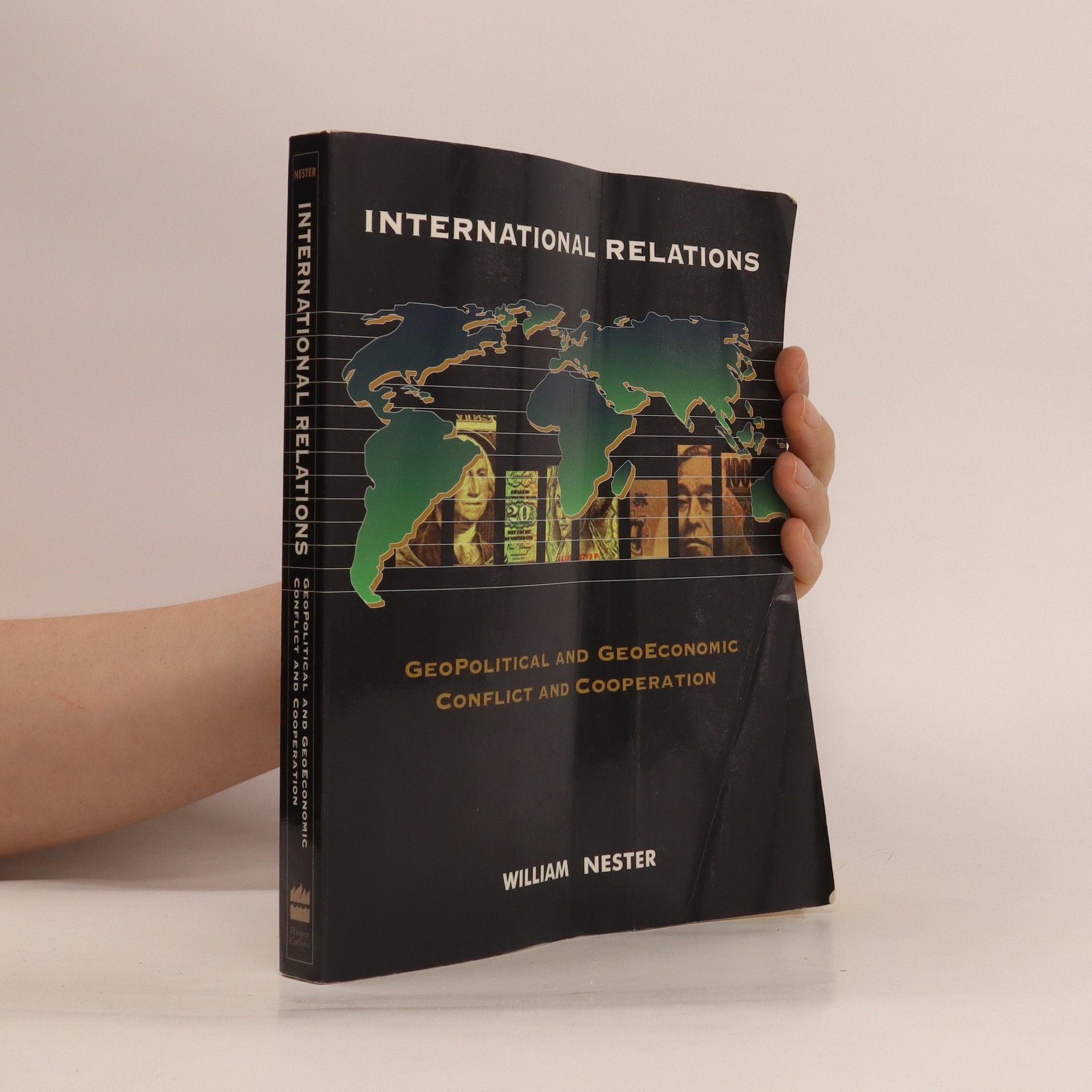World of War is an epic journey through America’s array of wars for diverse reasons with diverse results over the course of its existence. It reveals the crucial effects of brilliant, mediocre, and dismal military and civilian leaders; the dynamic among America’s expanding economic power, changing technologies, and the types and settings of its wars; and the human, financial, and moral costs to the nation, its allies, and its enemies. Nester explores the violent conflicts of the United States—on land, at sea, and in the air—with meticulous scholarship, thought-provoking analysis, and vivid prose.
William R. Nester Book order (chronological)
William Nester, PhD, is a Professor of Government and Politics whose prolific writing explores the multifaceted dimensions and subjects of international relations and power. His extensive body of work, comprising twenty-five books, delves deeply into the dynamics of global politics and the history of power structures. Nester's scholarship offers a profound examination of the complexities within the international arena and the historical contexts that shape the rise and fall of dominant forces. His writings provide readers with insightful perspectives on the intricate workings of geopolitical influence and historical trajectories of power.






Explores the financial and political background as well as the military elements of the Civil War.
This book explains the social and economic factors which enabled the UK to fund the coalitions that Napoleon faced.
This study comprehensively and systematically explores how Theodore Roosevelt understood, massed, and wielded power to pursue his vision for an America that was the world's most prosperous, just, and influential nation. číst celé
No previous book has explored deeper or broader into Napoleon's seething labyrinth of a mind and revealed more of its complex, fascinating, provocative, and paradoxical dimensions. This is Napoleon as has never been seen before.
The Old West's First Power Couples: The Frémonts, the Custers, and Their Epic Quest for Manifest Destiny
- 344 pages
- 13 hours of reading
A century and a half before the Kennedys and Clintons, the Fremonts and Custers were notable American power couples. John and Jessie Fremont, along with George and Libbie Custer, pioneered this phenomenon. The husbands gained fame as all-American heroes, with Fremont known as "the Pathfinder" for mapping the West and playing a key role in the conquest of California, leading to his nomination as the Republican Party's presidential candidate in 1856. Custer, celebrated as the "boy-general," became immortalized for his "last stand" at the Battle of the Bighorn, a defeat that resonates culturally like the Alamo. Both men embodied the themes of adventure and the belief in "Manifest Destiny," the idea that Americans were destined to expand across the continent. Their wives, Jessie and Libbie, were nearly as famous, serving as political muses who inspired their husbands' ambitions. Both were beautiful, vivacious, and skilled in navigating social dynamics. They endured hardships alongside their husbands, facing extreme weather and potential violence. The couples were also literary figures, with all four authoring works, although the women were often the better writers. However, both men ultimately self-destructed due to serious character flaws, leading to their downfalls. This narrative invites a critical reappraisal of their legacies, exploring the complexities of their lives as extraordinary, flawed individuals who significantly im
Explores all of Britain's key land and sea campaigns and the dynamic relation among them during the Age of Revolution and Napoleon. Reveals how two military geniuses were the reason why Britain and its allies vanquished France when and how they did.
Many biographies of Winston Churchill exist, but this work uniquely examines his influence and how he skillfully maneuvered to gain power. Professor William Nestor investigates Churchill's life and actions, revealing his controversial political presence. He stirred strong emotions in those around him; some admired him, while others condemned him as an egoist and Machiavellian figure. Despite the criticisms, Churchill's political acumen is evident in his success, winning sixteen of twenty-one elections from 1899 to 1955. The House of Commons served as his political arena, where he thrived on speeches and strategic negotiations. Throughout his life, he warned against the dangers of Communism, Nazism, and nuclear threats, often predicting events that others overlooked. His ability to think creatively and connect disparate ideas set him apart, although he was not infallible and sometimes made significant miscalculations. This book offers a fresh perspective on how Churchill mastered the art of power, drawing extensively from his speeches and writings to illustrate his insights and strategies.
This text provides a balanced analysis of geopolitics and geoeconomics and their inter-relationship. Its presentation combines a theoretical approach with both historical and contemporary perspectives in order to comprehensively depict the evolution of the global political economy.